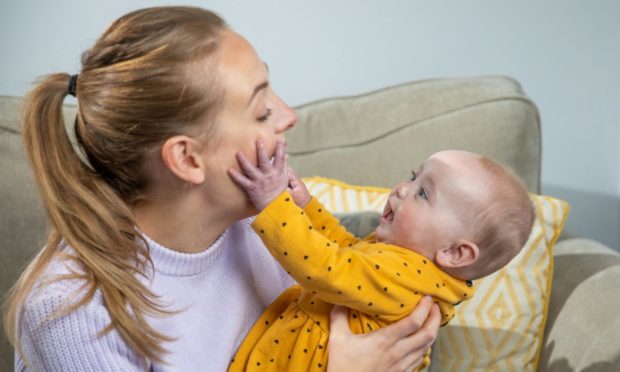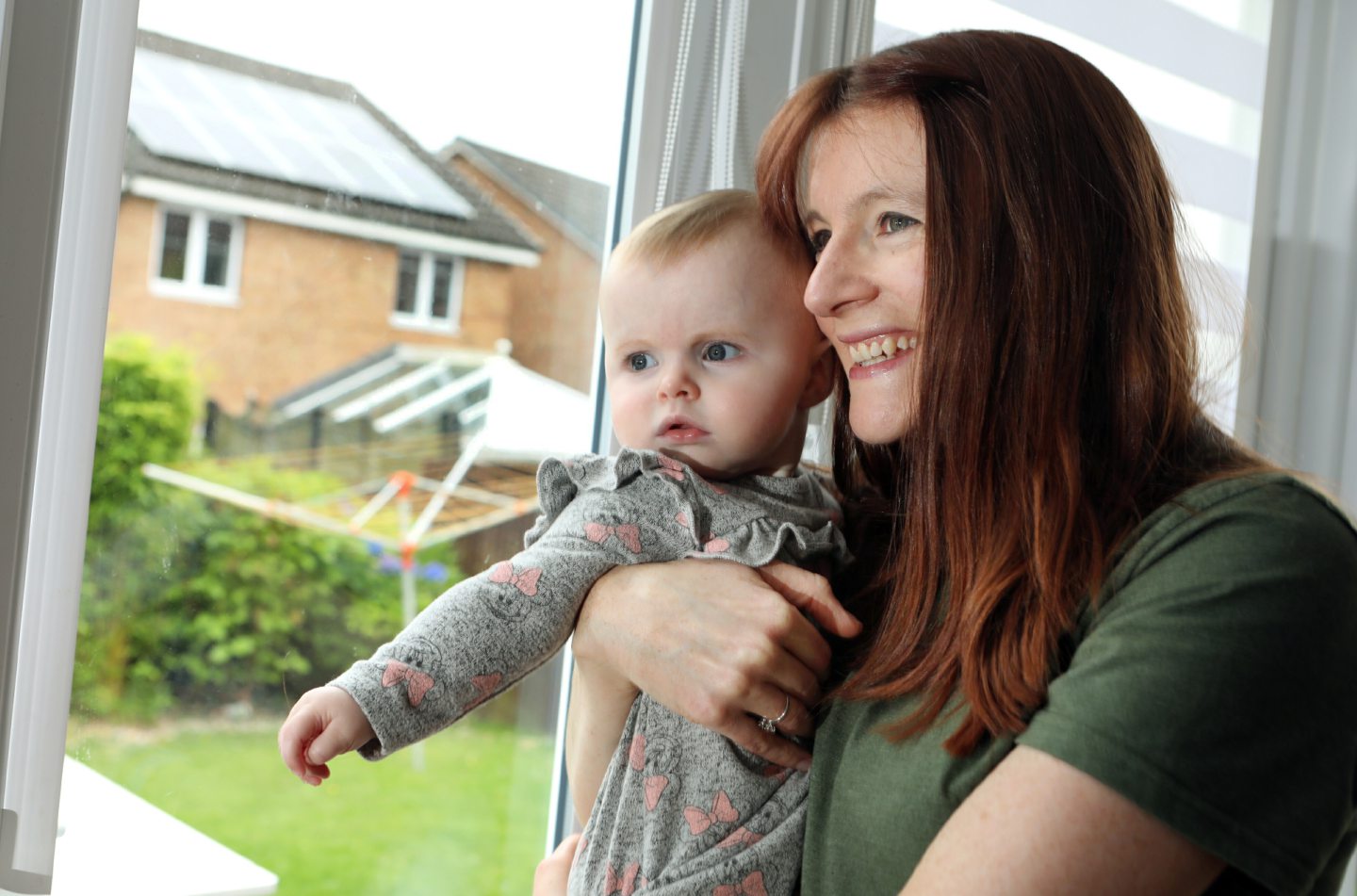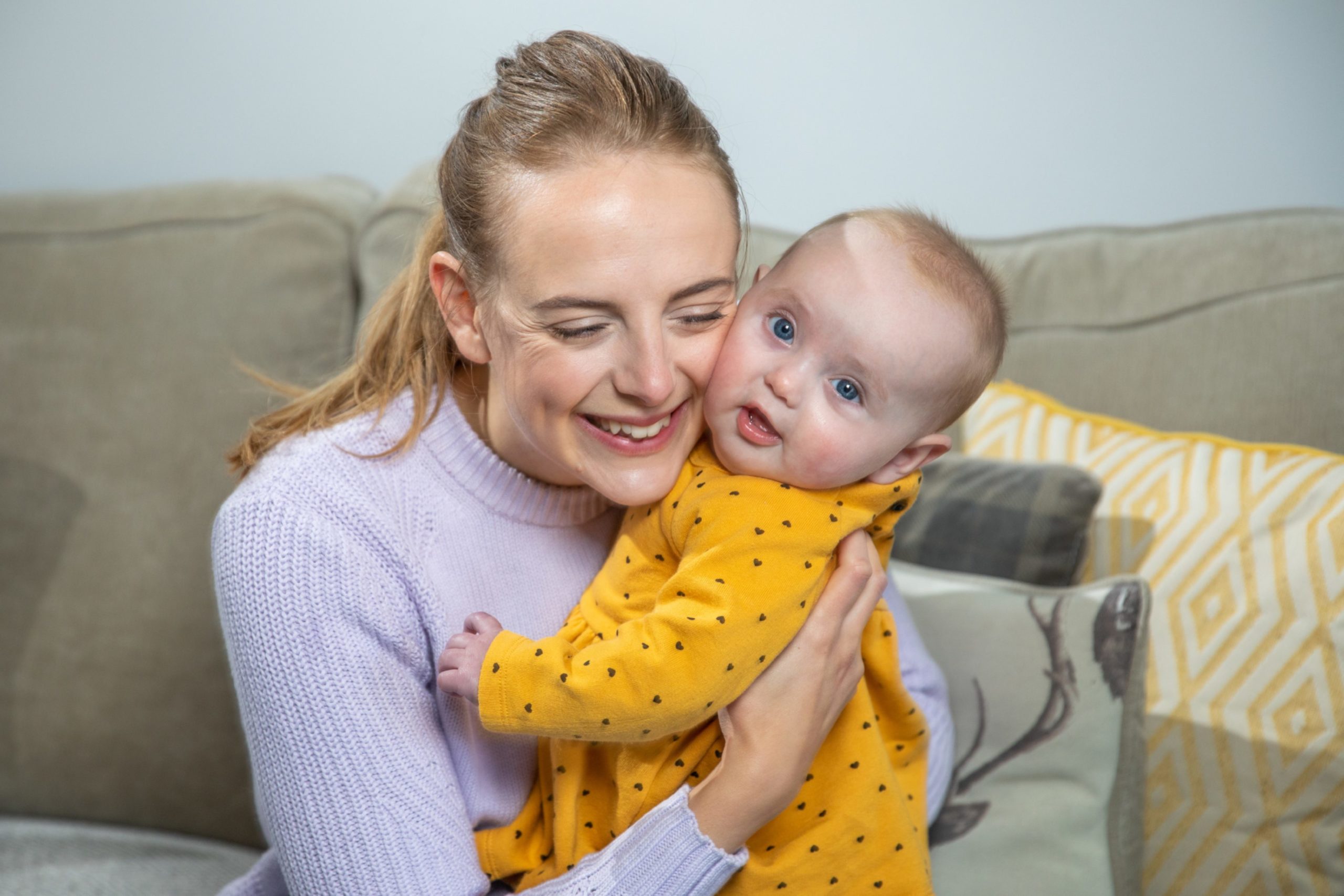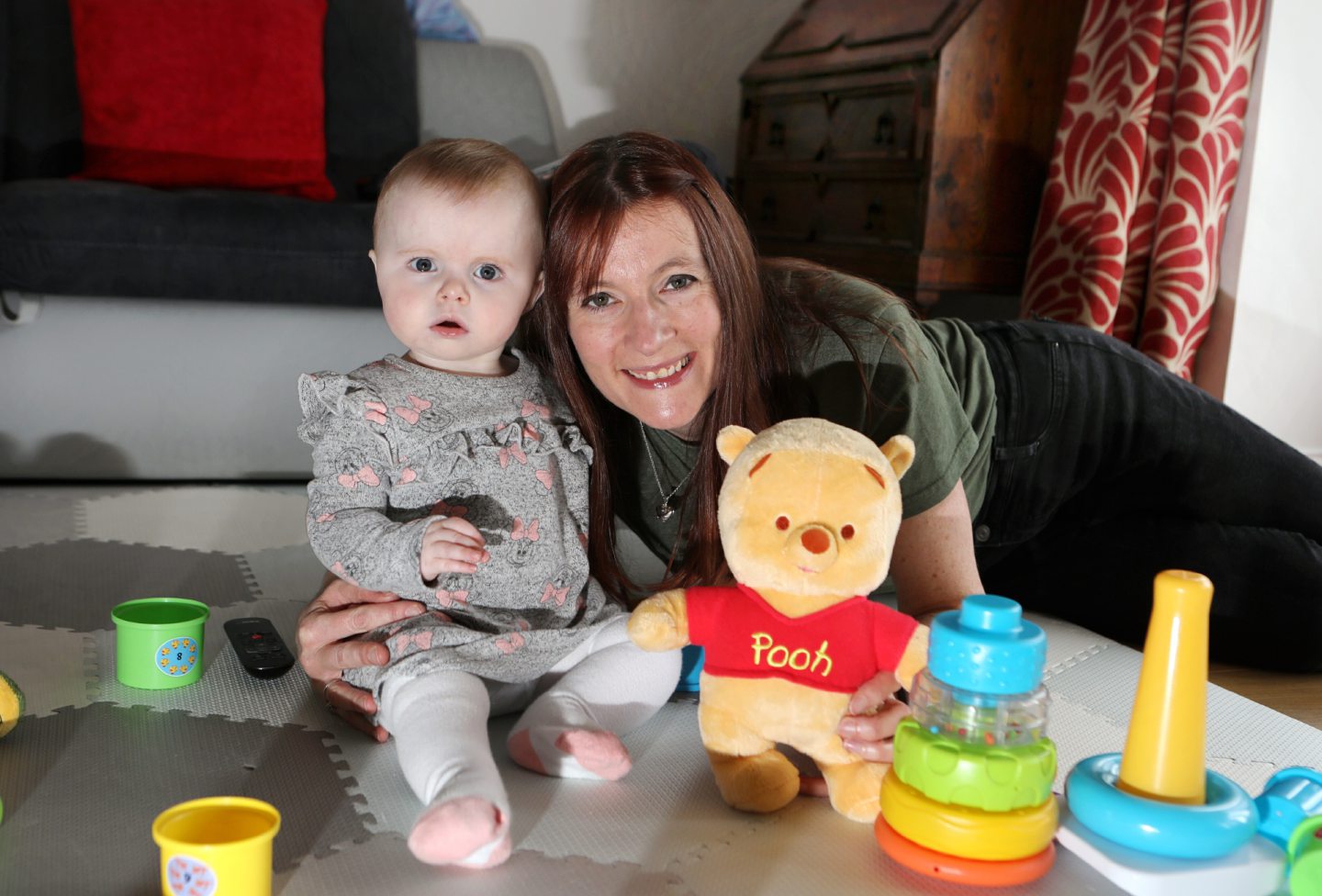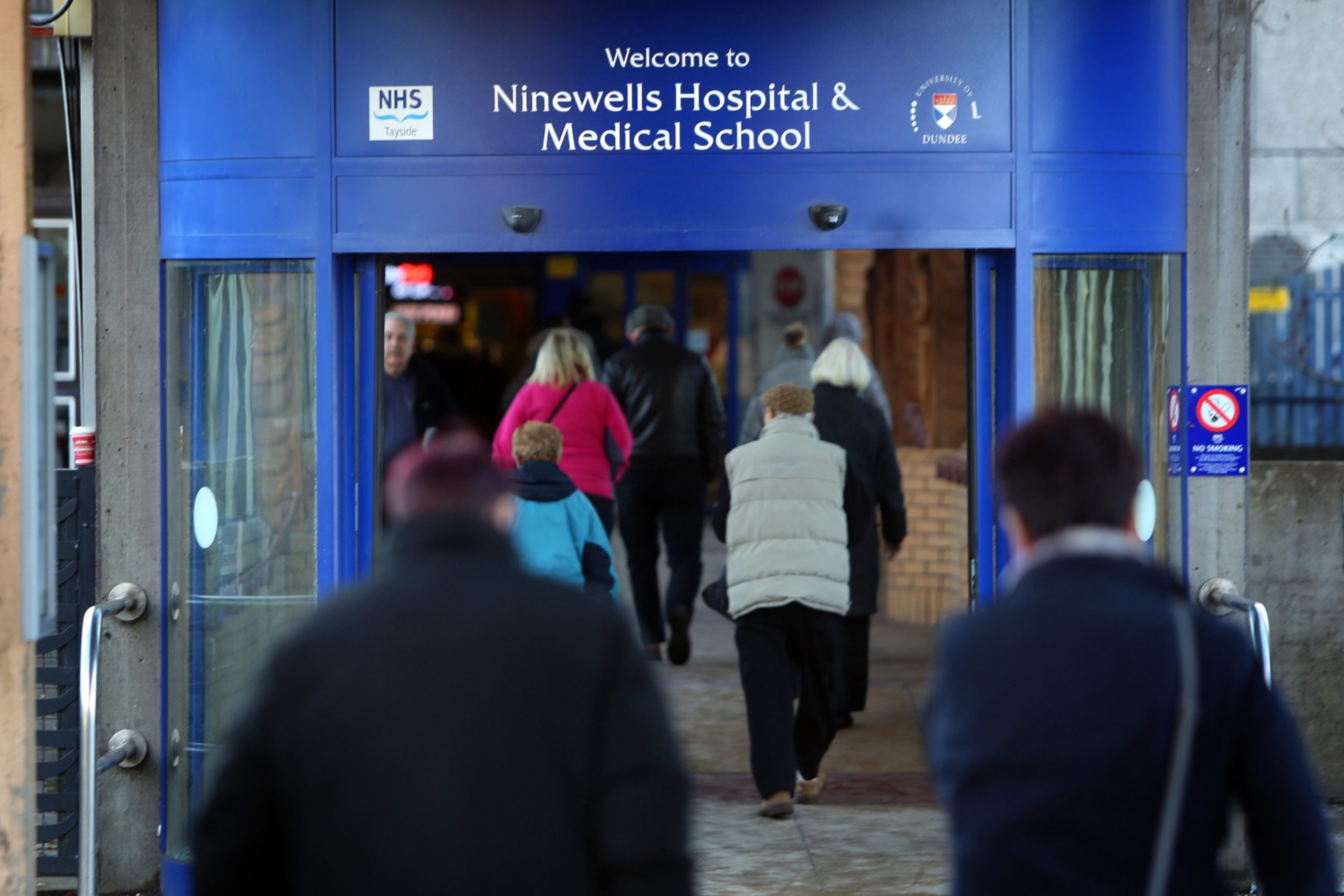New mums say the impact of Covid-19 left them living a life of isolation on maternity leave.
Some maternity groups across Dundee tentatively opened their doors last week to provide mums with essential connections to the community and each other.
But Covid-related restrictions introduced this week, limiting groups to six people from two households, could force groups to abruptly stop again.
Six months without baby classes has meant some mums, soon returning to work, will have missed the opportunity entirely to bond with other new parents locally.
Lisa Crow, 39, of Troon Terrace, had her daughter Isla in November and only managed to take her to one baby class before lockdown hit.
Lisa said: “It was such a shame because it was so amazing to see her interacting with other kids and how much she enjoyed it.
“I feel like she’s really missed out on that and learning how to share and communicate with them – it will all be new to her when she goes to nursery.”
Lisa also yearns for the “mum talk” at baby groups and reassurance from others living similar experiences as her.
She said: “It’s the everyday chat like hearing how other mums are getting on with finger food or sleeping routines, things that might not be significant enough to speak to my health visitor about but would be talked out almost in passing at classes.”
Jemma Hammond, 30, of Lord Drive, gave birth to her daughter Amelia in April.
As a result Jemma’s anti-natal classes were also cancelled.
She said: “I hadn’t met any other mums who were going through the same thing at the same time as me.
“My partner had to return to work after seven days and none of my friends and family were allowed to come over – it was a good few months before my parents got to meet Amelia.
“It felt like I was doing it all on my own. Even though I knew there were other mums out there, I hadn’t met them so I felt like I was the only one doing it.”
>> Keep up to date with the latest news with Evening Telegraph newsletter
Jemma has since met two mums with babies very close in age to Amelia.
They met on a parents’ friendship app called Peanut, but the latest restrictions will affect their ability to meet together.
Jemma said: “I understand the reasons for the restrictions but I feel angry and annoyed that people can go to the pub but I can’t meet up with two other mums.
“I had started to feel really positive that things were getting better. We went to our first Baby Sensory class last week and it was great and so safe.
“I wanted to take her to lots of classes and swimming, we’ve still never been able to do that, it’s supposed to start next week.”
Amy Yalden, coordinator for Breast Buddies Dundee, says many mums are feeling like they have missed out.
Mum of four, Amy, 35, from Dykes of Gray, said: “A huge part of having a baby is going out and meeting other mums for coffees, finding out what you can do with kids and how other mums do things.
“A lot of mums are struggling at the moment because they can’t do that or any of the other fun things like swimming, soft play or play dates.
“There’s only so much we can do online, it’s not the same as face-to-face meet ups and classes, which can be life-saving for some mums.”
Breast Buddies has expanded its online services, including group chats for mums to ask each other questions and offer peer support.
And plans are underway for meet-ups to restart after the October school holidays, depending on restrictions at the time.
For more information, see Breast Buddies Dundee’s Facebook page.
Call for partners to be more present in postnatal hospital wards
A therapist is calling for more maternity hospital access for partners during the Covid-19 pandemic.
Psychotherapist Sarah Wheatley, who specialises in parent to infant therapy, says that – in line with recent a study – she has noticed an increase in pre and post-natal anxiety and depression.
Sarah, a founding member of Edinburgh Birth and Beyond, reports a rise in birth trauma as a direct result of women giving birth without their partner present or being left in wards, where partners cannot visit.
She said: “Partners need to be allowed to be more present in hospitals. Having women isolated at the start of motherhood is a bad way to start the journey.”
Partners are not currently banned from accompanying women in labour at Ninewells Hospital or from visiting, however, restrictions are in place
Sarah says community restrictions are also fuelling a rise in pre and post-natal anxiety and depression.
She said: “We don’t know what is normal at the moment and not knowing what is normal has a real impact on people.
“People are saying things like ‘If it wasn’t for Covid then I would be doing this’ but actually their mum might not be coming over or they might not be well enough to go out.
“It allows them to fantasise about what it would be like but they are not calibrating against normal.”
Sarah says while some mums have benefited from the lack of pressure to socialise or attend baby classes, many have found it particularly difficult.
She said: “Some mums who are struggling with normal motherhood experiences and could do with a bit of socialising or reassurance or could just do with a hug from someone who gets how awful it feels are really missing the support of baby groups.
“But it’s the mums who are suffering – not the babies.
“They get just as much from interaction at home as they do from baby groups.”
